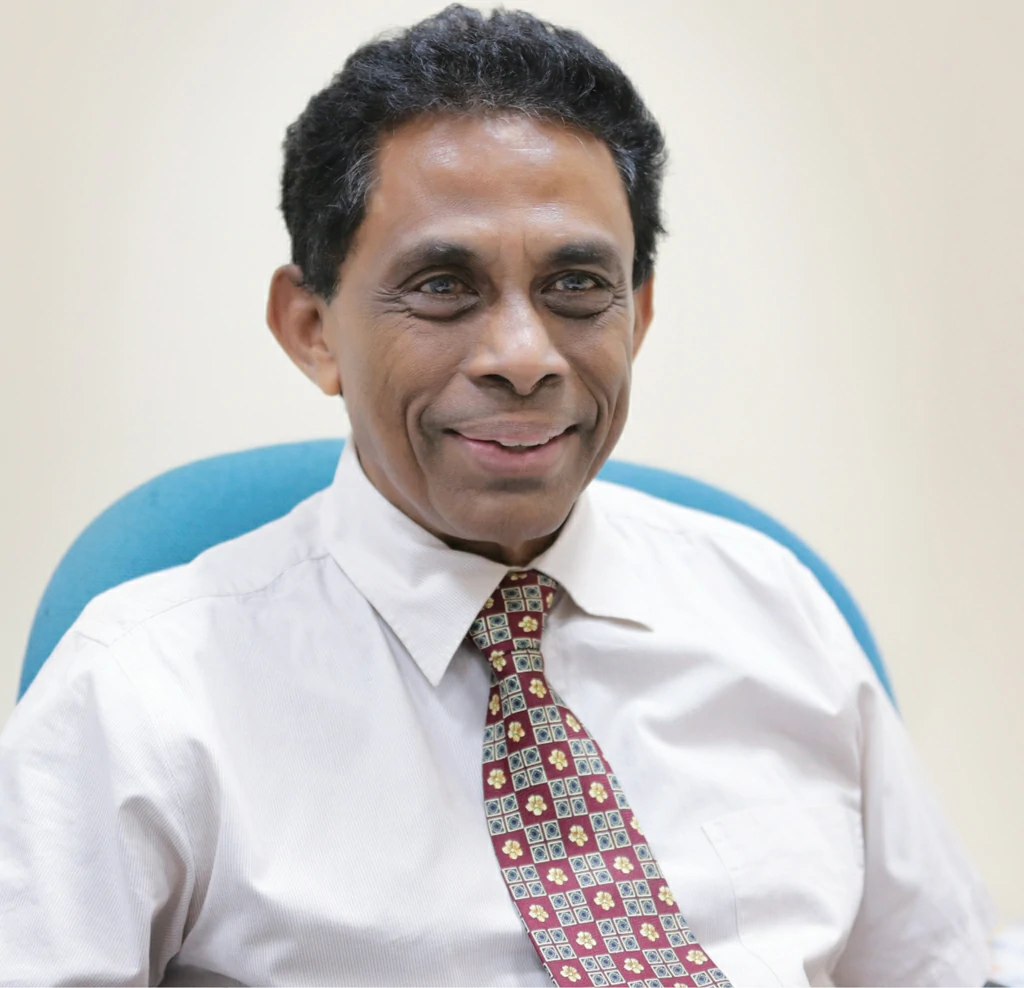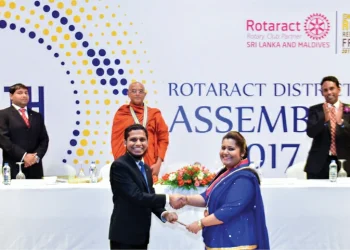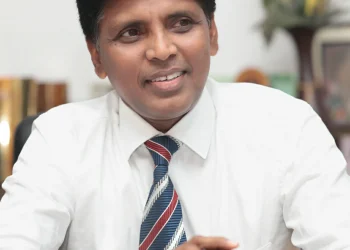
The Outbound travel industry of Sri Lanka has seen drastic changes throughout the decades, from growth, to decline and the emergence of new opportunities. Sasi Ganeshan, Cluster CEO – Travel and Aviation, Delair Travels has experienced these phenomena throughout his 39-year journey in the travel industry. He speaks about the scope of the industry and what travel agents must do to stay relevant in the digitisied market of today.
By Keshini de Silva
Photographs Menaka Aravinda and Geeth Viduranga
You have been involved in the travel industry for nearly four decades. Could you tell us about the transformation of the industry?
In the late 1970s, which was when I had joined the travel industry, every process was manual. When a reservation was made, a card was opened and telexes were sent to relevant Airlines for confirmation.
We referred the ABC Books for schedules when making reservations. These books were received twice a year: the winter schedule and summer schedule. In terms of the air fares, we referred the tariff book to construct fares accordingly. These fare constructions were complicated and it was not an easy task as one needed to use their brains and common sense.
When I joined the travel industry most of the reputed airlines like Singapore Airlines, Swiss Airways, British Airways, KLM, UTA, Thai Airways as well as Cathay Pacific were operating in Sri Lanka. These airlines were represented by their country managers who seemed more like the ambassadors for their respective country. During this time, the number of outbound travel agents was limited and there were just about 15 – 20 travel agents operating in Sri Lanka. These travel agents had quality employees, as a higher level of IQ was required for the job, due to the manual-intensive operations. After all, working at an Airline Agency, at that time, was considered a ‘glamourous’ job. Travelling abroad was also restricted due to exchange control regulations. Travel agent staff would receive free tickets, and we made use of it. In the 1970s regulations were implemented stating all foreign airlines should have a Sri Lankan representative (GSA). For example, Aitken Spence is the GSA for the Singapore Airlines, John Keells for Gulf Air and Carson Cumberbatch was for KLM Royal Dutch Airlines. It used to be lucrative for the GSAs as this operation was profitable.
This was the state of affairs in the sector until the 1983 problems, after which inbound tourism started decreasing and many of the European carriers started to stop operations out of Sri Lanka. Only Carriers like Singapore Airlines as well as Thai Airways continued to operate to Sri Lanka.
Later around 1985, immigrants started leaving the country through questionable means and this resulted in the expansion of travel agents in Sri Lanka, leading to a drop in the quality of the sector. This number has continuously increased and as at 2017 there are 152 IATA (International Air Transport Association) agents and also 452 non-IATA agents, which brings the total number of travel agents in Sri Lanka to over 600.
This drastic increase in agents, resulted in a decrease in the quality of employees. The earlier practice of restricting the issuance of airline tickets to airline offices was later changed and travel agents were authorised to issue tickets. In the past, Travel Agents were paid nine per cent commission and they were granted incentives by Airlines, which meant Agents were earning quite well and attractive salaries were paid to staff.
During This Time, The Number Of Outbound Travel Agents Was Limited And There Were Just About 15 – 20 Travel Agents Operating In Sri Lanka. These Travel Agents Had Quality Employees, As A Higher Level Of IQ Was Required For The Job.
However, the increase in the number of Travel Agencies was a turning point for the industry. Airlines were not in a position to accommodate all the agents and as such the larger agents started to act as a consolidator, which meant the smaller travel agents would approach the major Airlines through these consolidators. The consolidators would trade on credit and pass part of their commission to sub-agents. In many of the cases these Sub Agents failed to pay the consolidators, resulting in bankruptcy of a majority of consolidators.
Over the years there has been a reduction in the remuneration from Airlines to Travel Agencies. The commission fell from nine per cent to seven per cent and today only a few Airlines provide three per cent commissions while others merely provide net fares. With the advent of the internet, most customers prefer to purchase tickets online, which is cheaper than purchasing through an Agent. Therefore, my gut feeling is that in a few years there won’t be any scope for outbound travel agents, although, Sri Lankans do go through travel agents at the moment as those bearing Sri Lankan passports require visa to most countries.
Therefore if you consider the industry from then to now, yes inbound is booming, however outbound travel through travel agents is declining.
What does the future of the travel Agents and GSAs look like?
The scope for Out Bound Travel Agents in Sri Lanka is very limited. This sector is no longer a money-making industry. The major Airlines are encouraging and also promoting online ticketing as fares online are much cheaper in comparison to trading it through travel agents.
Travel Agents have to extend credit of 14 days to one month to most clients to secure their business. This has become a norm in the market. However, the Agents will have to settle the airline within seven days from stipulated periods. Therefore, this results in Agents having to advance money to settle Airlines. Corporate travel is also competitive as they are seeking the cheapest fare and maximum credit period.
The future of GSA operation is also not lucrative as airlines are forcing the GSAs to bear most of their overheads. Remuneration is also being charged on a target basis. Being a GSA is only a mere ‘prestige’ and is just beneficial to corporates acting as GSAs for their business expansion.
Therefore, to survive I believe the travel agents should focus on inbound travel and outbound tour packages to certain exotic destinations. In Sri Lanka, those focusing on inbound travel are on the right track. The leading travel agents today own hotels in the Island and offer tour transport services. If the smaller agents wish to survive they would have to think out of the box and do something related to the tourism industry.
Due to the increase in online ticketing there is also a scope for online ticketing agents such as FindMyFare.
To Entrepreneurs I Say, Be Honest. Once The Business Is Doing Well, Do Not Lose Focus.
The Middle East was one of the biggest outbound foreign exchange earners for Sri Lanka, however, we have seen a drop in this market.
In Sri Lanka, inbound travel agents are looking into India and China as those are the growing markets. Although, European travel market exist these are not growing markets. Therefore, these are the markets to tap and most of the companies are doing that. I believe the inbound travel agents are on the right track. Most travel agents are moving towards digitisation and have tied up with major tour operators. They attend many of the world travel fairs to represent themselves, as well as to create awareness on Sri Lanka as a unique, tropical travel destination.
In the long term I believe there is a lot of potential for inbound travel agents.
As the future is in inbound travel, what are your thoughts on the tourism industry?
Sri Lanka, just like the Maldives, is mostly about the inbound tourism. The outbound market is fairly limited. There is great scope in inbound travel market. In terms of the country’s hospitality industry, I believe we are on the right track. The hotels are coming up and the industry is booming. The Minister and major players in the industry are doing a comprehensive job.
You are set to retire this month. What are your future plans?
I joined the travel industry in 1978 as a trainee executive for Aitken Spence, to work for Singapore Airlines, as the company was the Airline’s General Sales Agent (GSA) at the time. I initially started at the reservations counter and we were all sent to Singapore for training, where we received some of the best coaching in the world. Later I was promoted to Ticketing Manager and subsequently was the Manager of the GSA for Singapore Airlines. I was next appointed the Managing Director of the GSA and Director Aitken Spence Group.
I have been with Aitken Spence for almost 33 years of my career and can say that this is one of the best blue chip companies in Sri Lanka.
In terms of the future, I would love to give back to my school, St Thomas’ College, Mount Lavinia and spend time with my family.
Who is Sasi Ganeshan?
I believe in honesty and integrity. I am also a team player; I always ensure I give credit to my staff. Today these are the most important qualities. It is very easy to gain a bad name, yet it is quite difficult to earn a good name. I believe that wherever you go, people will respect you if you stand by your principles.
Message to travel agents and entrepreneurs?
My message to outbound travel agents is, they must think as well as concentrate more on inbound travel in Sri Lanka, or else there is very little future for them. To entrepreneurs I say, be honest. Once the business is doing well, do not lose focus.





